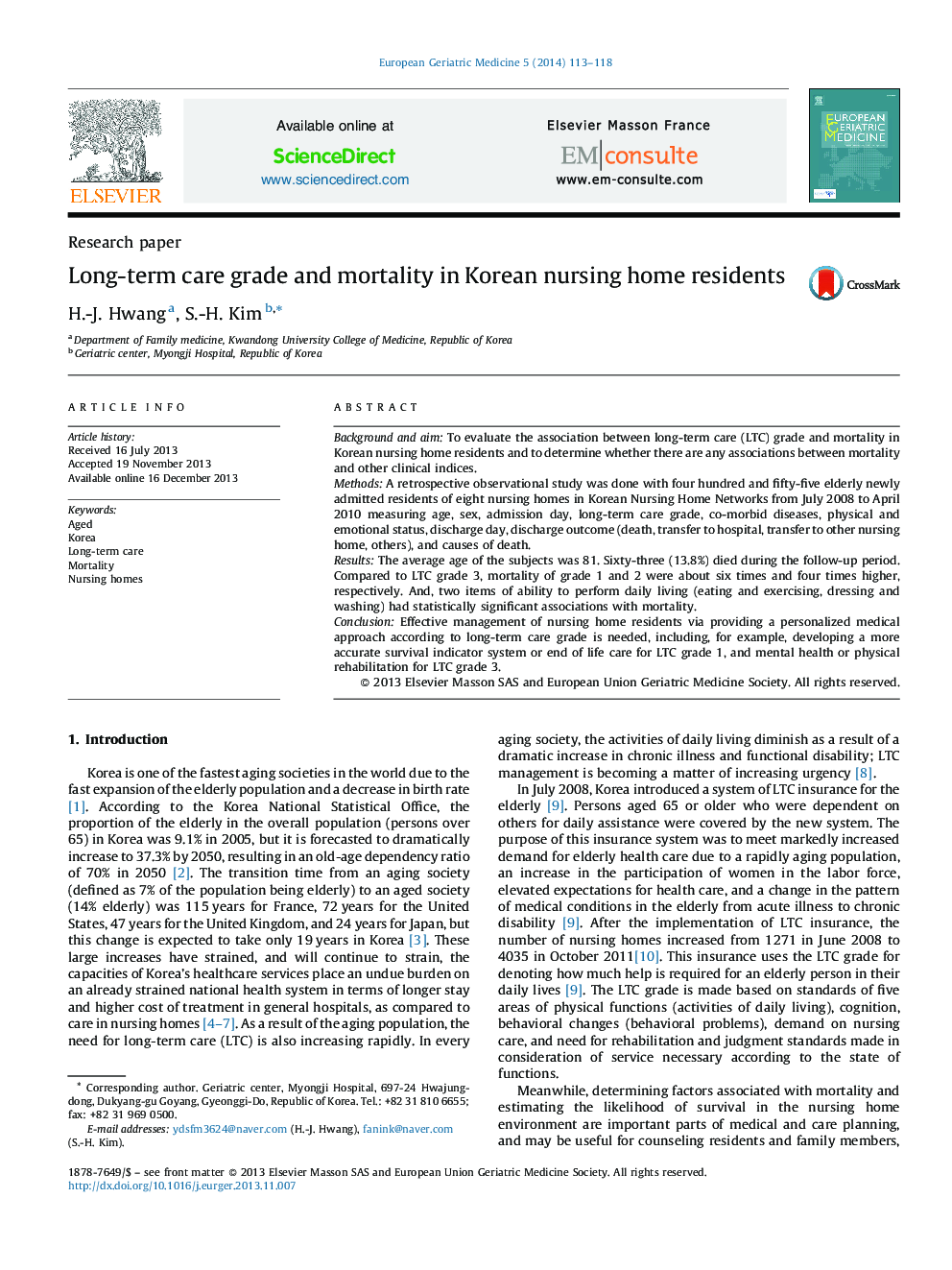| Article ID | Journal | Published Year | Pages | File Type |
|---|---|---|---|---|
| 3324297 | European Geriatric Medicine | 2014 | 6 Pages |
Background and aimTo evaluate the association between long-term care (LTC) grade and mortality in Korean nursing home residents and to determine whether there are any associations between mortality and other clinical indices.MethodsA retrospective observational study was done with four hundred and fifty-five elderly newly admitted residents of eight nursing homes in Korean Nursing Home Networks from July 2008 to April 2010 measuring age, sex, admission day, long-term care grade, co-morbid diseases, physical and emotional status, discharge day, discharge outcome (death, transfer to hospital, transfer to other nursing home, others), and causes of death.ResultsThe average age of the subjects was 81. Sixty-three (13.8%) died during the follow-up period. Compared to LTC grade 3, mortality of grade 1 and 2 were about six times and four times higher, respectively. And, two items of ability to perform daily living (eating and exercising, dressing and washing) had statistically significant associations with mortality.ConclusionEffective management of nursing home residents via providing a personalized medical approach according to long-term care grade is needed, including, for example, developing a more accurate survival indicator system or end of life care for LTC grade 1, and mental health or physical rehabilitation for LTC grade 3.
